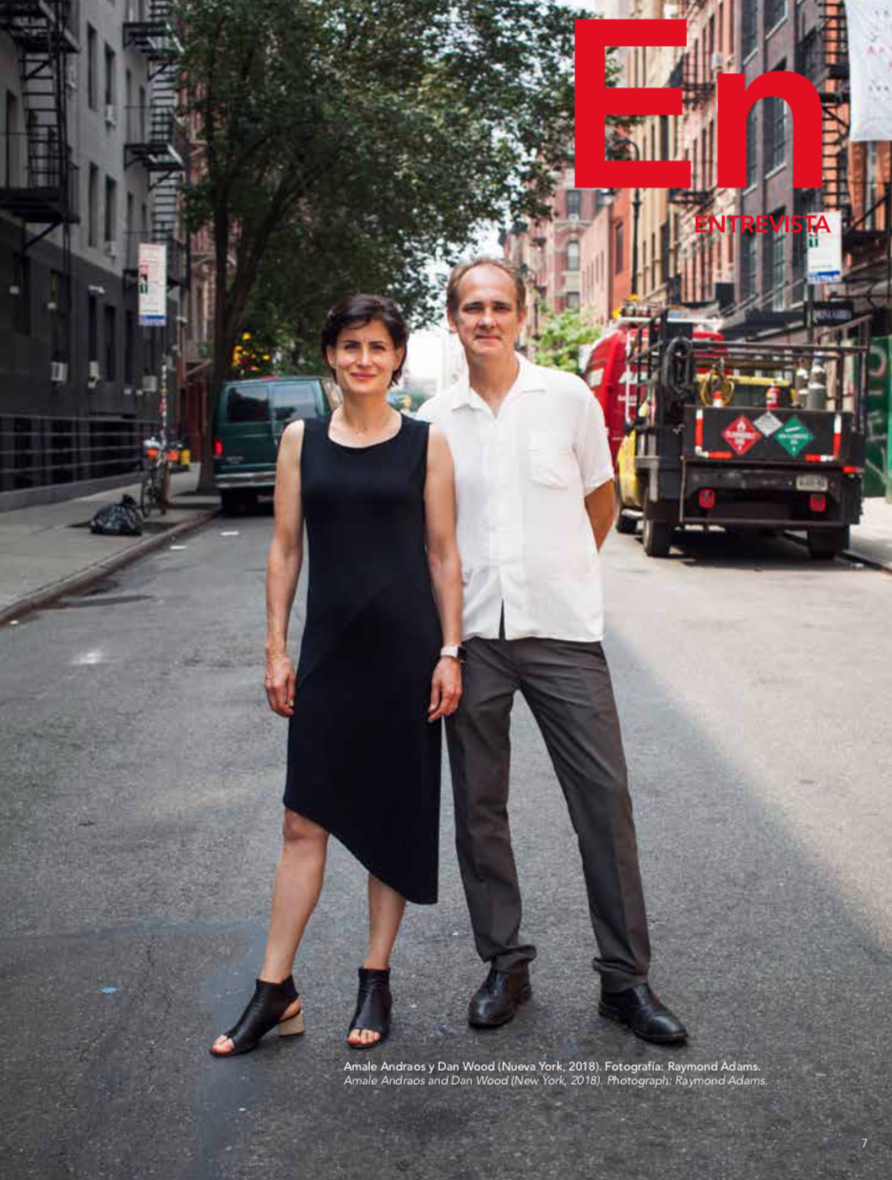Amale Andraos y Dan Wood: La conversación en el corazón del proceso de diseño
Main Article Content
Abstract
En 2003, Amale Andraos y Dan Wood fundaron WORKac con un objetivo claro: reinventar la profesion, estableciendo nuevas relaciones entre arquitectura, ciudad y naturaleza. La Public Farm 1, los Edible Schoolyards en Nueva York y el futuro Centro de Convenciones de Libreville en Gabon son, entre otros, el resultado de este objetivo. El trabajo de ambos ha recibido numerosos premios, entre los que destacan el reciente primer lugar en el “Architect 50” Top 50 Firms in Design 2017 por la revista Architect, y el AIANY Architect Firm of the year 2018.
En paralelo a su labor profesional, Andraos y Wood se han convertido en actores academicos de relevancia en diversas escuelas de arquitectura. Amale Andraos ha ensendo en Harvard, Pennsylvania y Princeton, entre otras instituciones; y Dan Wood, en UC Berkeley, Princeton, Yale y Cooper Union, entre otras. Actualmente ambos son docentes en Columbia GSAPP, en donde Amale Andraos es decana desde 2014.
En esta entrevista, Amale Andraos y Dan Wood plantean su oficina como un sujeto en dialogo, que se encuentra en el corazon de su trabajo; y que a traves de este dialogo, construyen su manera de pensar y hacer arquitectura "en el mundo"
Article Details

This work is licensed under a Creative Commons Attribution-NonCommercial 4.0 International License.
Materia Arquitectura provides immediate and free access to all the content of this online edition, published simultaneously with the print edition.
Materia Arquitectura does not charge authors for any concept.
All contents of this electronic edition are distributed under the Creative Commons license of "Attribución-shareAlike 4.0 Internacional" (CC-BY-SA).
The rights of the published texts and images belong to their authors, who grant Materia Arquitectura the license for their use. The management of the permits and the authorization of the publication of the images (or of any material) that contains copyright and its consequent rights of reproduction in this publication is the sole responsibility of the authors of the articles.
As long as they mention their origin, the authors are free to distribute their articles by other means. Any total or partial reproduction of the material must mention its origin.
